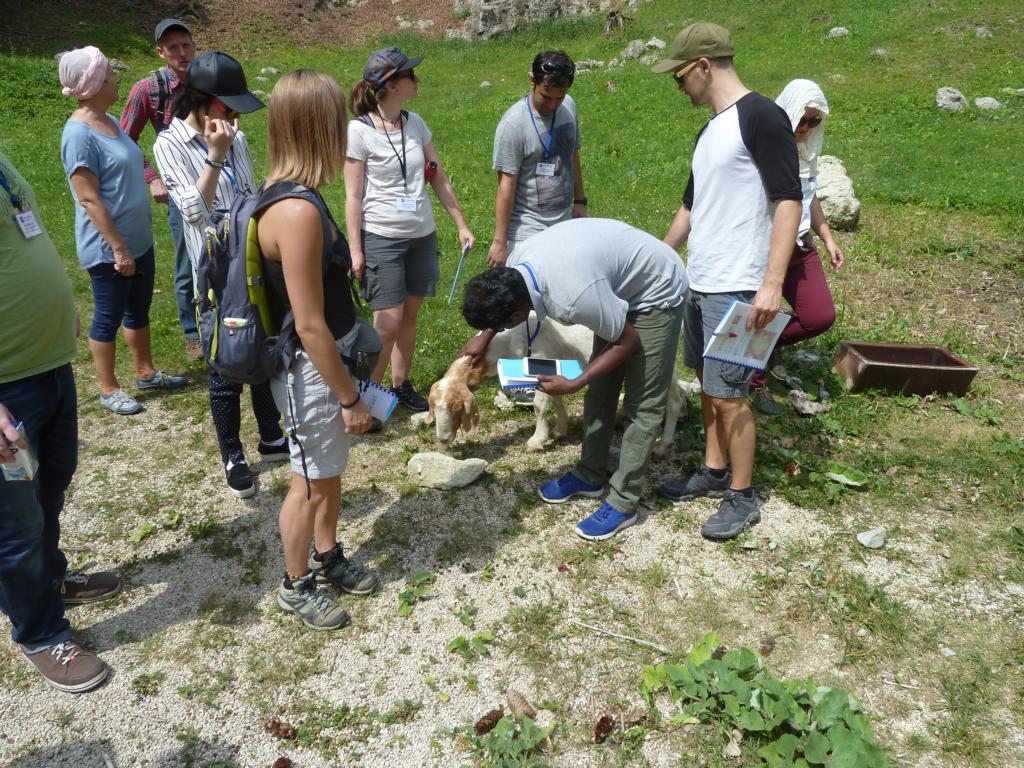Introduction & Summary
The goal of the IRTG is to educate the next generation of planetary scientists with a background in different disciplines. The IRTG is managed by a graduate program director elected by the members’ assembly and who is also a principal investigator with the TRR 170. A postdoc coordinates the day-to-day business with the support of an office. Two representatives at Berlin and Münster represent the body of doctoral students. Graduate director, coordinator and doctoral student representatives are members of the TRR 170 executive board. As of 2019, the program had 21 international doctoral students (Germany, China, The Netherlands, Greece, Hungary, Italy, Pakistan), 29% of them are women. Students receive a certificate if they complete the course and seminar program with 30 credit points (ECTS).
In January 2019, two doctoral students had graduated, 19% had earned the required 30 credit points or more while 52% had acquired 20 CTS and more. The qualification program comprises three key educational areas:
(1) Specialized seminars and courses focus on research-related skills, advanced methods, and topics related to planetary remote sensing, meteoritics, cosmochemistry, impact research, and planetary geophysics.
(2) Seminars and courses on planetary sciences topics are the main forum of intellectual exchange within the program. National and international scientists (including TRR 170 colleagues) lectured at the TRR 170 seminar series at Berlin and Münster, the annual scientific meetings, and a winter and two summer schools (2016: Planetary geodynamics; 2017: Impact processes in the solar system; 2018: Origin of the Earth Moon system).
(3) Transferrable skills needed for general career success were offered both at Berlin and Münster. Workshops (scientific writing, poster presentation, scientific presentation, and graphics software) were organized by doctoral students and the coordination office and were fully funded by TRR 170. The TRR 170 exchange program sustained collaborations with international institutions that perform research in planetary science. The program funded fellowships for visiting researchers such as qualifying students, postdocs and senior researchers to participate in educational events and to collaborate with TRR 170 research groups. One of the program’s tiers offered travel stipends for lecturers at winter and summer schools, and speakers at TRR 170 seminars and workshops. A third tier provided funding for short-term stays for TRR 170 doctoral students and postdocs to visit partner institutions abroad.
The program also co-funded the participation of international doctoral students in the winter and summer schools. These measures and national and international inquiries for fellowships and collaborations with TRR 170 scientists demonstrate that our graduate program in planetary sciences together with the program’s research increased the visibility of Berlin and Münster as centers of planetary science education and research in Germany. Because of the success of the program, we intend to maintain the current structure for the graduate program during the next funding period.
Students on a Ries crater field trip during summer school 'Impact processes in the solar system', Nördlingen (Germany), June 2017.


